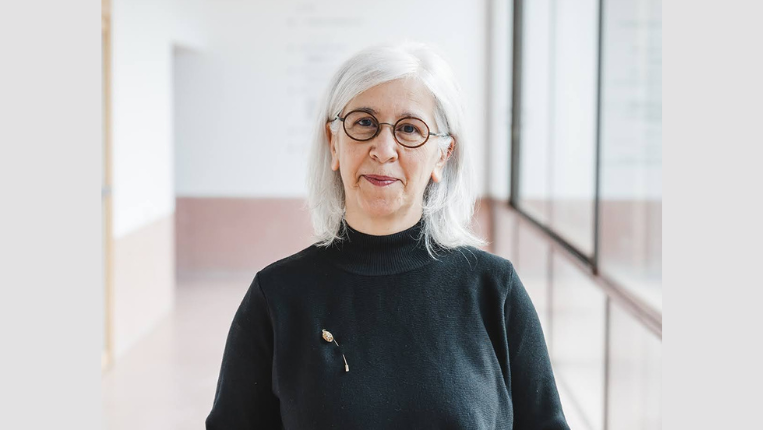E-mail: candidaturas.porto@ucp.pt
Tel.: (+351) 939 450 000 / (+351) 939 450 012
2ª a 6ª feira: 9h30-12h30 e 14h30-17h30
Plano de Estudos / Study Plan
Contactos
Mais Informações
Application deadline: May 29, 2025
The study plan includes theoretical and scientific work, data collection and analysis (3,625 h), training in research methodologies (500h), as well as practical work related to transversal topics, such as scientific writing (375h), aiming at the development of an original research project leading to a doctoral degree. Students are integrated into Research groups and develop their thesis in the context of one of the four defined areas. The work is developed under a team's supervision of three researchers, one from each partner university. In the first semester, the student focuses on developing a proposal and submitting it for approval at the end of that period.
Mobility
The programme includes an international research internship (mobility) under the following conditions:
- Suppose a student enrols through Universidade Católica Portuguesa (Portugal) or Blanquerna - Universitat Ramon Llull (Spain): In that case, this student will spend 12 months at Nottingham Trent University (UK);
- If a student enrols through Nottingham Trent University (United Kingdom) – this student spends 12 months in one or both of our partner universities - Universidade Católica Portuguesa (Portugal) / Universitat Ramon Llull (Spain).
The mobility period is decided based on the development of the student's work.
Additionally, students can have another mobility period (between 1 and 6 months) depending on the needs of their project.
Monitoring and evaluation
All the activities developed by students are recorded in the Doctoral Student's Activity Document (DAD), an electronic document managed by the coordinating university (Blanquerna - Universitat Ramon Llull), accessible to all students and supervisors. In addition, the student's progress is monitored every six months.
Presentation and defence of the Thesis
The Ph.D. thesis consists of a compendium of scientific publications or a doctoral dissertation of 60,000-80,000 words, depending on the regulations of the host university. The submitted manuscript will be presented and evaluated in public examinations according to the host university’s regulations and the country’s legislation. The examining board at the Blanquerna - Universitat Ramon Llull and the Universidade Católica Portuguesa includes an element from Nottingham Trent University. After the successful completion of the public examinations, the three universities recognized the doctoral degree, and the host university awards a diploma on behalf of the three institutions.
O plano de estudos inclui trabalho teórico e científico, recolha e análise de dados (3.625 h) e treino de metodologias de investigação (500h), bem como trabalho prático relativo a temas transversais, como a escrita científica (375h), visando o desenvolvimento de um projeto de investigação original conducente à obtenção do grau de doutor. Os estudantes são integrados em grupos de Investigação e desenvolvem a sua tese no contexto de uma das quatro áreas definidas. Cada estudante desenvolve o seu trabalho suportado por uma equipa de três orientadores, um de cada uma das universidades parceiras. No primeiro semestre, os estudantes focam-se no desenvolvimento dos seus projetos, a apresentar para aprovação no final desse período.
Mobilidade
O programa inclui um estágio internacional de investigação (mobilidade) nas seguintes condições:
- Universidade Católica Portuguesa (Portugal) + Universitat Ramon Llull (Espanha) – Os estudantes passam um período de 12 meses na Nottingham Trent University (Reino Unido)
- Nottingham Trent University (Reino Unido) – os estudantes passam um total de 12 meses numa ou nas duas universidades parceiras - Universidade Católica Portuguesa (Portugal) / Universitat Ramon Llull (Espanha)
- O período de mobilidade é decidido com base no desenvolvimento do trabalho do estudante.
- Adicionalmente, os estudantes poderão ter outro período de mobilidade (entre 1 e 6 meses), dependendo das necessidades do seu projeto.
Monitorização e avaliação
Todas as atividades desenvolvidas pelos estudantes são registadas no Doctoral Student’s Activity Document (DAD), um documento eletrónico gerido pela universidade coordenadora (Universitat Ramon Llull), acessível a todos os estudantes e orientadores. O progresso do estudante é monitorizado a cada 6 meses.
Apresentação e defesa da Tese
A tese de doutoramento consiste num compêndio de publicações científicas ou numa tese de doutoramento de 60,000-80,000 palavras, em função dos regulamentos da universidade de acolhimento. O manuscrito submetido será apresentado e avaliado em provas públicas de acordo com o definido pelo regulamento da universidade de acolhimento e pela legislação do país. O júri de doutramento, na Universitat Ramon Llull e na Universidade Católica Portuguesa inclui um elemento da Nottingham Trent University. Após a conclusão com sucesso das provas públicas, o grau de doutor é reconhecido pelas três universidades, sendo atribuído um diploma, pela universidade de acolhimento, em nome das três instituições.
| Semestral/Biannual | Tese / Thesis | 160 |
| Semestral/Biannual | Métodos Avançados de Investigação I / Advanced Research Methods I | 15 |
| Semestral/Biannual | Métodos Avançados de Investigação II / Advanced Research Methods II | 5 |
Contactos
Mais Informações
Application deadline: May 29, 2025
Contactos
Mais Informações
Application deadline: May 29, 2025




